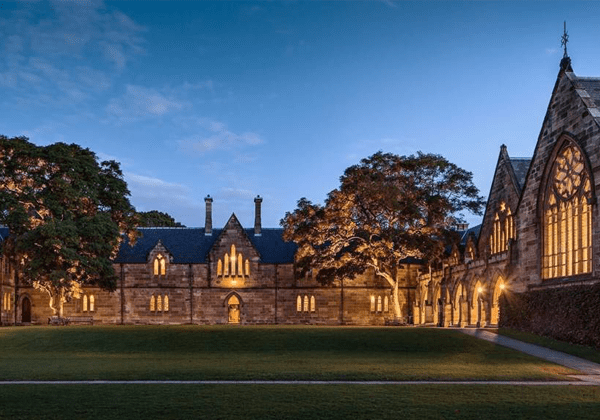At the beginning of 2021, the voice of public reason in Australia appeared to be that of women. One only needs to look at the list of the 66th Walkley Award finalists to see the truth in this assertion. Built on the backs of the personal stories of young women such as Brittany Higgins, Grace Tame and countless others, names like Samantha Maiden, Lisa Wilkinson, Louise Milligan, Laura Tingle, and Katherine Murphy, flooded our television and computer screens. A #MeToo reckoning took over the Australian political and journalistic consciousness — institutional sexism and misogyny, formerly the subject of backroom discussions, suddenly became front page news. But as the year nears a close, what do we have to show from these commanding efforts?
In many ways, I think that the answer to this question is aptly captured in part of a tweet from Louise Milligan, shared just a few days ago: “Don’t think I’ve ever seen a year where the response to women speaking up for themselves and other women has been so resoundingly: [zip face emoji]. Shut them up. ”
Social and political institutions are the backbone of the social realm. Firmly embedded in a series of informal and formal norms, they govern collective behaviours, create predictability and reinforce stability. But what happens when this predictable behaviour turns sinister? Who is at fault? The institution or the individual?
A common view of institutions is that they are abstract, neutral arrangements in which existing norms are played out. Under this guise, injustice can simply be countered with anti-discrimination policies or non-compulsory ‘empathy training.’ But if 2021 has taught us anything, it is that this is far from the truth. Institutions are a powerful, regulatory force for behaviours, where devotion is sought from a sense of attachment to not only formal rules of conduct, but more often, informal values that go unspoken and unacknowledged. From this perspective, a genuine investment in addressing violence and discrimination against women has been almost non-existent, with those in power hiding the issue behind smoke screens and band-aid solutions, or even more shockingly, promoting those at the centre of ongoing scandals.
But while the rest of the nation was shocked by the allegations surfacing from the nation’s capital, closer to home, a similar scandal continued to bubble within the USyd Residential Colleges. Reporting from Honi Soit and Pulp Media made it no secret that the Residential Colleges at the University of Sydney are home to a similar, if not more intense, brand of sexism and misogyny. This reality was reinforced by the 2018 ‘Red Zone Report’ by End Rape on Campus, which graphically detailed instances of sexual violence and hazing in the colleges.
On the 26th of October, St Paul’s College Warden, Ed Loane, announced that the College would admit undergraduate women from 2023 onwards. This announcement was paired with a position paper presenting the case for becoming fully co-residential, as well as a summary of the co-residency decision process. While much of the case for co-residency captured in this paper details the need to increase diversity and provide equal opportunity to all university students, regardless of gender, two points made in the positions paper strike me as particularly alarming.
Firstly, the ‘case from perception’ details that the move would offer an opportunity for St Paul’s College to remedy its public perception as being “anachronistic and chauvinistic.” This point appears to echo the age old position that simply inserting diverse bodies into an institution will guarantee a change in its culture. Additionally, this appears to be an inefficient and superficial remedy to deeply ingrained cultural issues that will likely only put prospective female residents in a position of higher risk.
Secondly, and honestly unsurprisingly, the ‘business case’ speaks to the need to fill beds at the institution to avoid financial burden. Whilst positioned as the penultimate point of contention in the positions paper, the business case appears to be one of vital importance to St Paul’s, particularly as the College recently took out an emergency loan from its foundation.
In a paper titled Reframing Honour in Heterosexual Imaginaries, philosophers Moira Gatens and Millicent Churcher proposed that in an institutional setting, it is necessary to reframe our understanding of ‘honour.’ In conversation with Honi, Churcher acknowledged that their paper’s attachment to the concept of ‘honour’ was met with significant push-back among academic circle. Much of this can be put down to the fact that the term honour is viewed as archaic, and carries baggage associated with historical conceptualisations of the patriarchy. However, what sets ‘honour’ apart from terms such as ‘respect’ is that honour is a cluster concept that has the capacity to prompt a series of powerful affective responses — the ability to promote a sense of pride or foster a sense of shame, to name but a couple.
Top-down solutions can invite reflection on the shortcomings of an institution, like the Residential Colleges. Nonetheless, substantive change will not occur unless men within these institutions are willing to break the code that has been so firmly ingrained within the institution, and realise that what is truly honourable, is the capacity to go against the grain. The only thing that stands in the way of this reality, is the very real fact that men are deeply afraid of other men.
2021 started as the year of the woman. In many ways, the voices of women have been dulled as operational and economic efficiency are privileged over social wellbeing and cultural change. If only the colleges were as willing to protect women as they are to protect their pockets.





